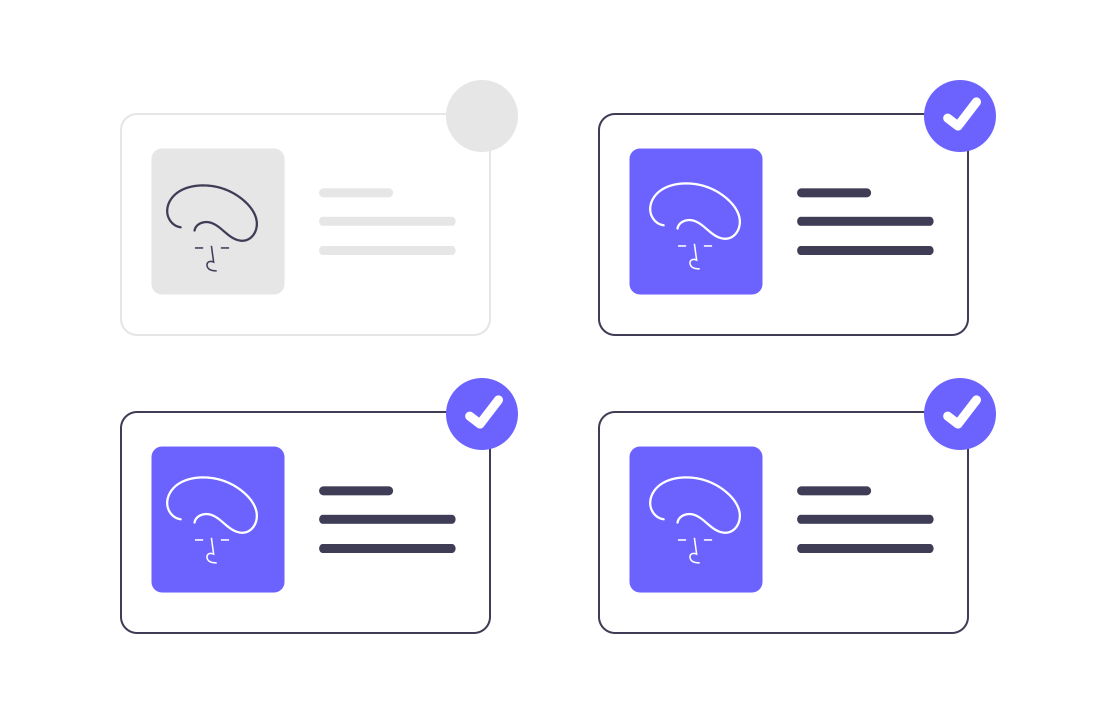In today’s fast-paced digital world, segmentation-based marketing has become a cornerstone for businesses aiming to connect with their audiences on a more personal level. The advent of AI and Big Data has dramatically transformed this landscape, enabling marketers to create highly personalized and effective campaigns. This blog explores the revolutionary impact of AI and Big Data on segmentation-based marketing.
The Evolution of Marketing Segmentation
Traditional Segmentation
Before the rise of AI and Big Data, marketing segmentation was a manual and often imprecise process. Marketers relied on basic demographic data, such as age, gender, and location, to divide their audience into broad segments. This method, while useful, lacked the depth needed for truly personalized marketing.
The Dawn of Digital Transformation
With the digital transformation, data became more abundant and accessible. Marketers could now gather a wealth of information from various online and offline sources, including social media, website interactions, and purchase histories. However, the sheer volume of data posed a new challenge: how to analyze and utilize it effectively.
AI and Big Data: A Game Changer
Data Collection and Integration
AI and Big Data technologies have revolutionized how data is collected and integrated. Advanced algorithms can now automatically gather data from diverse sources, providing a holistic view of the consumer. This comprehensive data collection enables more accurate and detailed segmentation.
Predictive Analytics
One of the most significant advancements brought by AI is predictive analytics. By analyzing past consumer behavior, AI can predict future actions and preferences with remarkable accuracy. This capability allows marketers to anticipate customer needs and tailor their strategies accordingly, resulting in higher engagement and conversion rates.
Real-Time Personalization
Big Data and AI facilitate real-time personalization, a powerful tool for marketers. By continuously analyzing data, AI can adjust marketing messages and offers in real-time based on the latest consumer interactions. This dynamic approach ensures that marketing efforts remain relevant and compelling.
The Benefits of AI-Driven Segmentation
Enhanced Customer Insights
AI provides deeper insights into customer behavior and preferences. By processing vast amounts of data, AI can uncover hidden patterns and trends that would be impossible to detect manually. These insights enable marketers to create highly targeted and effective campaigns.
Increased Efficiency
Automation is another key benefit of AI-driven segmentation. Tasks that once required significant time and resources can now be performed automatically. This increased efficiency allows marketers to focus on strategy and creativity, rather than data processing.
Higher ROI
Ultimately, the combination of AI and Big Data leads to higher ROI. Personalized marketing campaigns are more effective at engaging consumers and driving sales. By targeting the right audience with the right message at the right time, businesses can maximize their marketing investments.
Challenges and Considerations
Data Privacy and Security
While AI and Big Data offer numerous benefits, they also raise concerns about data privacy and security. Marketers must ensure that they handle consumer data responsibly and comply with relevant regulations. Transparency and ethical data practices are essential to maintaining consumer trust.
The Need for Skilled Professionals
Implementing AI-driven segmentation requires specialized skills and knowledge. Businesses must invest in training and hiring professionals who can manage and interpret complex data. Collaboration between data scientists and marketers is crucial for success.
The Future of Segmentation-Based Marketing
Continued Advancements
The field of AI and Big Data is continually evolving. Future advancements are likely to bring even more sophisticated tools and techniques for segmentation-based marketing. As AI becomes more intelligent and data collection methods improve, the potential for personalization will grow exponentially.
Integration with Other Technologies
AI and Big Data will increasingly integrate with other emerging technologies, such as augmented reality (AR) and the Internet of Things (IoT). These integrations will open new possibilities for engaging consumers in innovative ways.
Conclusion
AI and Big Data are revolutionizing segmentation-based marketing, offering unprecedented opportunities for personalization and efficiency. By harnessing these powerful technologies, businesses can gain deeper customer insights, improve marketing effectiveness, and achieve higher ROI. As the digital landscape continues to evolve, staying ahead of these trends will be crucial for marketing success.


